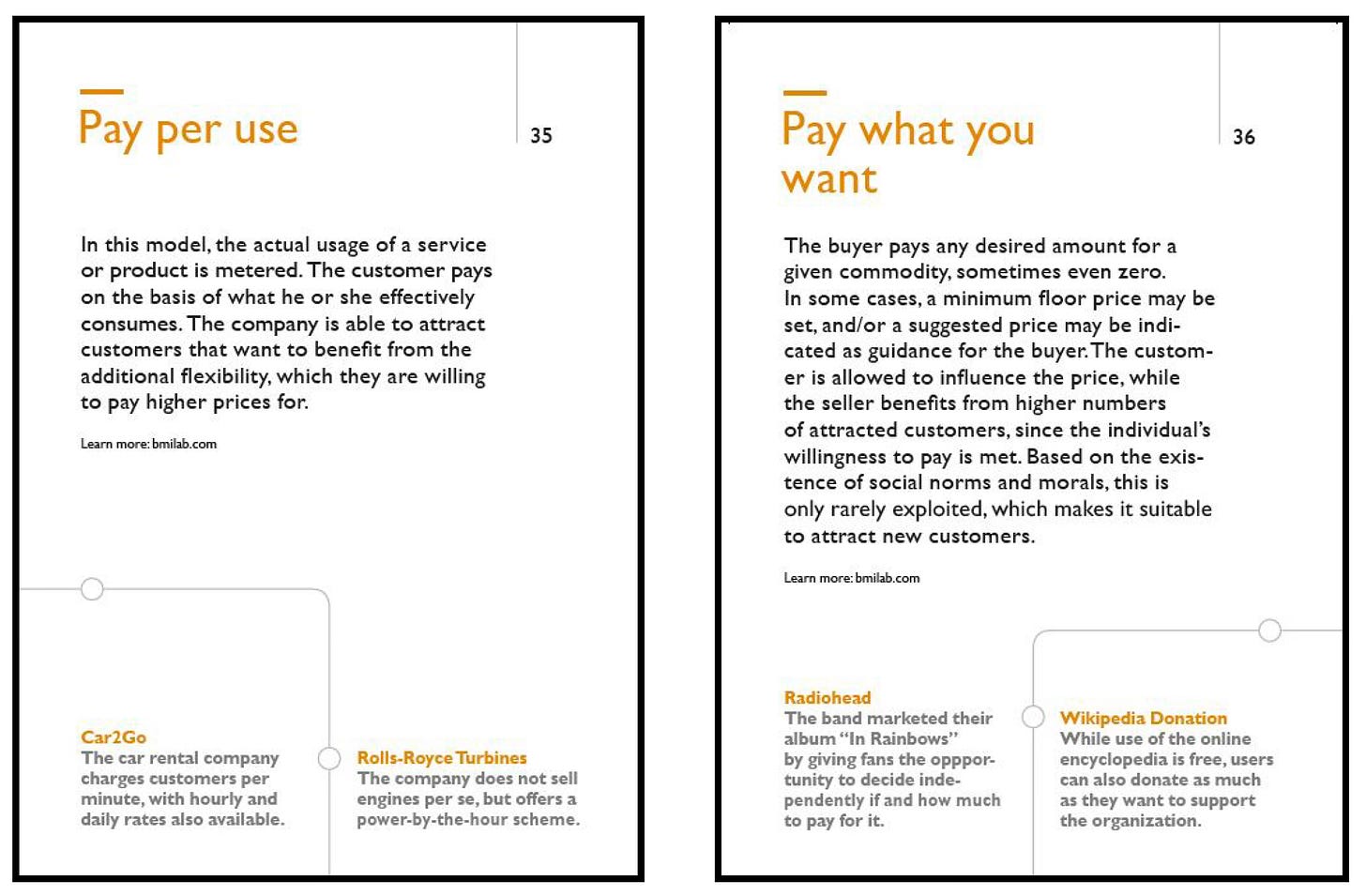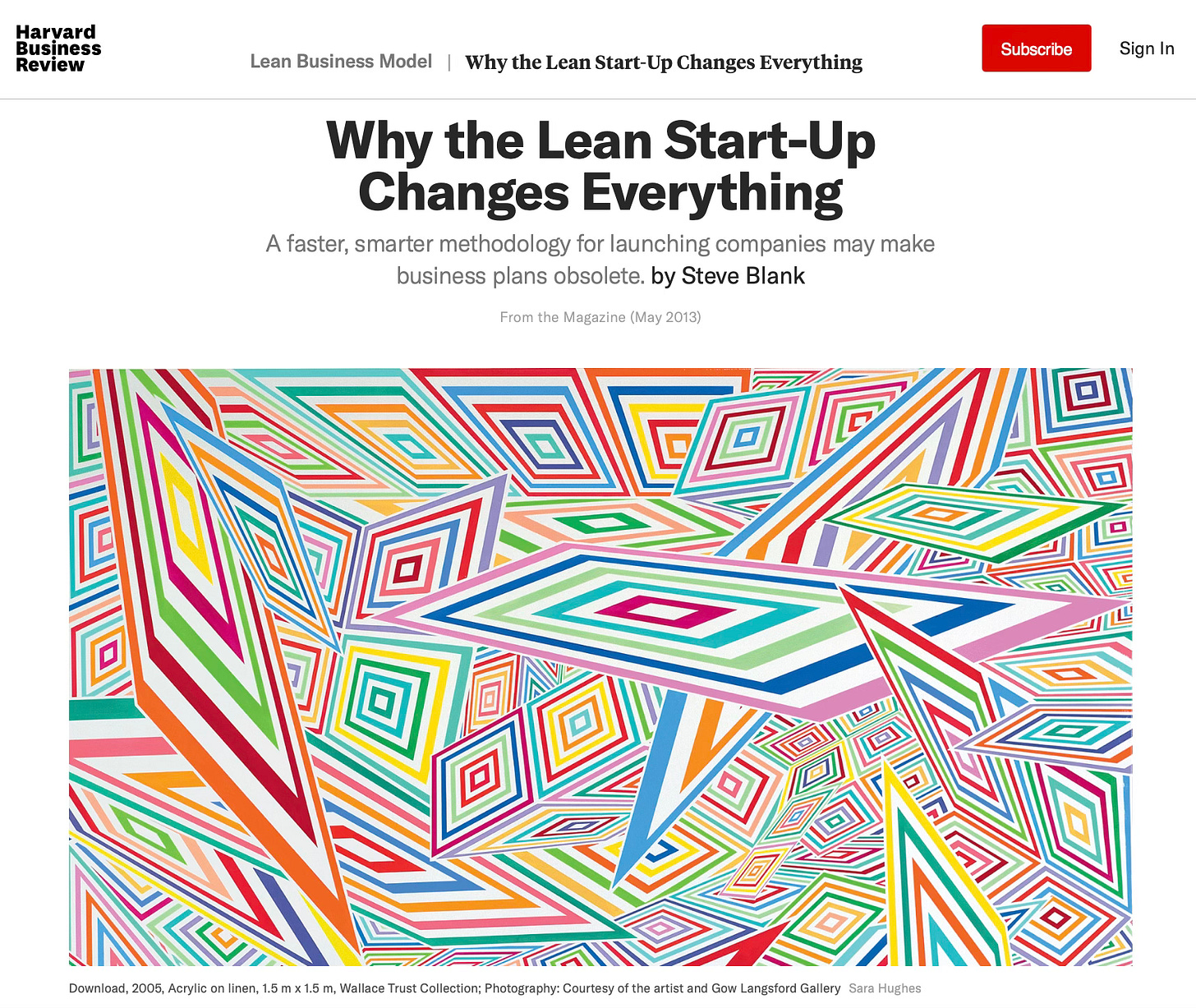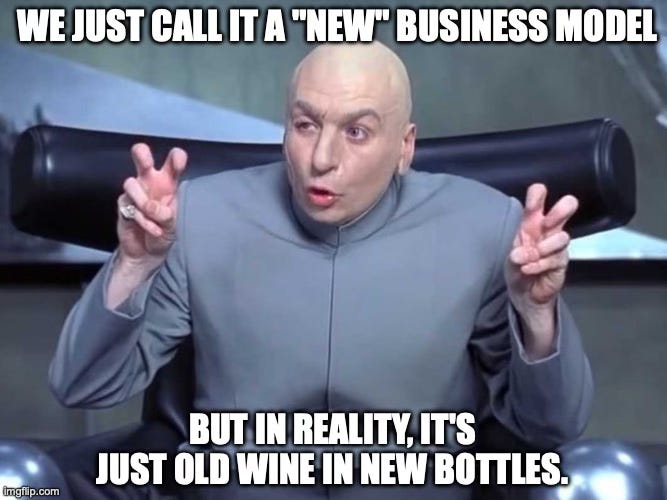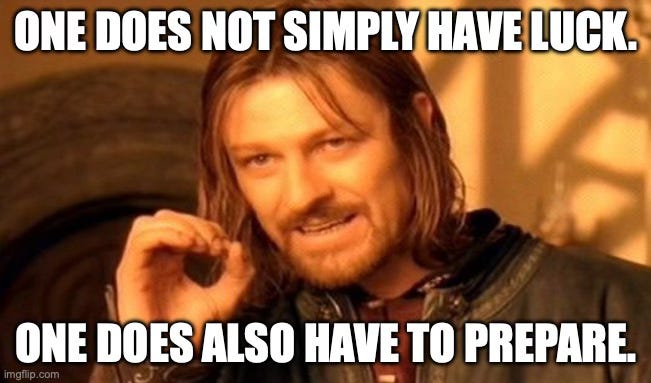"New" Business Models
This article is part of a content series on the topic of "Digital Business Models" that I created for a course at the Vorarlberg University of Applied Sciences.
After a great trip to Brazil (during which I didn't work a bit), I'm back and we can get on with the important things in life, like digital business models 🙈🫣🥶
Attentive readers of my last posts on business models may have wondered why I put the word "new" in quotation marks when referring to "new" business models. But there is a reason for this and it can be found in the work of Gassmann et al.
In their research, Gassmann et al. recognized that many "new" business models are not really new at all, but are based on existing (old) business model patterns. In fact, Gassmann et al. describe that 90% of all “new” business models are merely recombinations of existing patterns. Interesting… if only I knew these patterns, for goodness sake, I hear you thinking. And if you were really just thinking that, I have good news for you: science has got you covered!
Gassmann et al. have identified 55+ business model patterns that can serve as a source of inspiration. There is a book on it, but someone recently asked me who still reads books 🤷♂️🥶 In this respect, I am glad that the authors have summarized the 55+ business models in a card format (find them here under Business Model Pattern Cards, example see below). You can read through the paper in an hour and pick up the various business patterns.

Now the question is, how can these patterns be recombined into new business models? I asked ChatGPT if it could come up with some business model innovation for selected existing business models based on Gassmann's patterns. The output was rather modest, to say the least. It seems that there is still a need for entrepreneurial/ innovative peeps here. Okay, I hear you thinking, but how should I proceed if I want to build innovative business models? Most people would clearly answer with use the “Lean Startup Method”. I am also a fan of this method and even teach a one-week course at our university called “Lean Startup Bootcamp” 👀 If you are interested to learn more and get an overview on the Lean Startup Method, you can check out Steve Blank’s Harvard Business Review Article titled “Why the Lean Start-Up Changes Everything”.

In the lean startup method (in a nutshell), you outline the “new” business model in a business model canvas (if needed, you can learn more about the business model canvas here) and then you validate critical hypotheses about the “new” business model (e.g. people will order socks by subscription online) with a minimum viable product (short MVP). The method is great, it relies heavily on action and the generation of real-life results.
And entrepreneurs & innovators embrace the hustle— execute, iterate, pivot. Just go for it. So theory and conceptual work is sometimes seen as somewhat old-fashioned in the innovation/ startup bubble (a la "we'd rather try it out than think about it for a long time"). But I believe that having a certain theoretical basis, a certain amount of thinking before acting, raises the (lean startup) experiments to a higher level (also see my article below). Reading and thinking about the business model patterns of Gassmann et al. is therefore (IMHO) an hour well spent.
So if you are pursuing business model innovation, ask yourself questions like: What problems have not been properly solved (which may be better solved today with new technologies; read more about this here)? Is there any literature that I can use to quickly get up to speed on the subject? Which environments (and people) are thought-provoking and provide new perspectives? Are there other innovators who have already gained experience in this field (failed attempts as well)? Are there any methods that can help me in the process (e.g. Jobs-to-be-done, Lean Startup, Design Thinking)? What do we want to achieve? And so on... you wouldn't believe how many people start innovation projects without having done the slightest homework 🙈
So make sure that you are prepared to seize innovation opportunities, because as my favourite roman philosopher said:
“Luck is what happens when preparation meets opportunity" - Seneca
Disclaimer: The thoughts published in this publication are my personal opinion and should not be considered as investment advice or a recommendation for any type of action. I am not a financial expert. The startups, organizations or corporates highlighted in this publication have caught my interest. This mention is not an endorsement or recommendation to engage with them. Readers should always do their own research.



